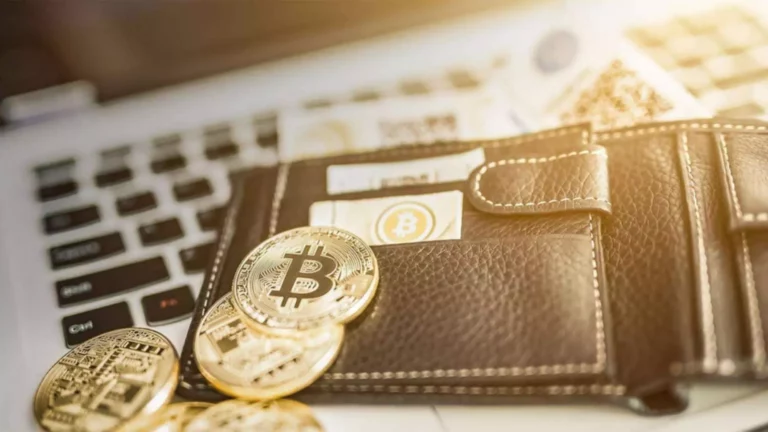Indeed, the SEC has focused crypto enforcement firepower primarily in connection with allegations of unregistered sales of securities. In August 2021, for example, the SEC announced that Poloniex LLC would pay more than $10 million to settle charges for operating an unregistered online digital asset exchange in connection with its operation of a trading platform for digital asset securities. More recently, in February 2022, BlockFi Lending LLC (BlockFi) agreed to settle with the SEC for $100 million for failing to register the offers and sales of its retail crypto lending product. FinCEN has also made clear that AML obligations extend to Decentralized Finance, commonly referred to as DeFi, a blockchain-based form of finance that does not rely on central financial intermediaries such as brokerages, exchanges, or banks. Many of the laws being used to prosecute cryptocurrency crime are laws that currently exist such as mail fraud, securities fraud, and computer intrusion. Two areas of concern raised by the Justice Department Framework were the increasing use of untraceable cryptocurrencies and efforts to obscure transactions such as mixing and tumbling.
A notice issued on May 18 amended that guidance, pushing the compliance date to April 1, 2022, but FINTRAC reserved the right to assess transactional information collected by reporting entities prior to the new date. CipherTrace Intelligence continues to monitor the donation funds which remained in private wallets or other addresses that had not yet moved. Oliveira reported a hack on the https://www.xcritical.in/ Bitcoin Bank back in 2019 but, according to police investigations, there was no hack—Oliveira and team had withdrawn the cryptocurrencies themselves. On May 19, the PancakeBunny protocol faced a flash loan exploit that drained $45 million worth of crypto assets. 8 flash loans were used to manipulate the price on various PancakeSwap pools, resulting in the minting of 697,000 BUNNY tokens.
This
Notification also reflects the government’s intent to follow a
global approach of transitioning from a light-touch approach
(i.e., regulating from an anti-money laundering or taxing
perspective) to a more comprehensive approach. This
Notification aligns with the global best practices which call for
cryptocurrency exchanges to follow anti-money laundering standards
in line with those followed by other regulated entities such as
banks. Even as G20 President this year, India has pushed for a
global consensus on arriving at a comprehensive regulation
governing cryptocurrency and addressing its perils. In the interim,
this Notification is seen by many to be a prudent measure to reduce
financial crimes, and India’s regulatory moves are further
being keenly followed by the global economy. While AML rules for banks and crypto are governed by similar laws, AML plays out differently in the two industries.
The FATF issued its first report on anti-money laundering and countering terrorism financing risks of virtual currencies (cryptocurrencies) in 2014. Now the FATF issues global, binding standards to prevent money laundering with virtual currencies. In 2020, the FATF issued a review of revised standards on virtual currencies and virtual asset service providers (VASP) or cryptocurrency exchanges. Unlike traditional financial institutions, Virtual Asset Service Providers (VASPs) have an increased risk of inadvertently transacting with sanctioned jurisdictions simply because of the pseudonymous, cross-border nature and global reach of cryptocurrency transactions. VASPs should use IP data derived though blockchain analytics to enhance their compliance programs and reduce sanctions risk exposure.
As VASPs continue to mature and adopt stronger security measures, CipherTrace has found that criminals are beginning to set their sights on greener decentralized finance servicesGeneral services, including non-profits, forums and news sit… How can the US and the international community strengthen cryptocurrency anti-money laundering and countering financing of terrorism compliance? They must strengthen regulatory oversight of cryptocurrencies, exchanges, and transactions.
Partly prompted by the terror attacks in France, the new regulations are designed to fight terrorist financing and money laundering, while making information more accessible to European financial regulators. The directive also includes tough new regulations for virtual asset service providers (VASPs) such as virtual-to-fiat exchanges and custodian wallet providers. The order was wholly focused on deficient anti-money laundering (AML)Anti-Money Laundering (AML) rules are in place to help prote… More practices for compliance and monitoring of the bank’s Digital Asset Customers (DACs). The lack of AML controls cited include opening accounts for DACs without sufficient customer due diligence (CDD) and a lack of adequate monitoring and investigating of suspicious transactions linked to these customers.
- This amendment was a result of the implementation of AMLD5 into the UK’s national legislation.
- Most investigations are successful when cryptocurrency hits a regulated exchange; by forcing criminal activity out of the exchanges, investigators will lose one of their most powerful tools for tracking, tracing and identifying criminals and their activity.
- In 2018, Coincheck was hacked and over $500 million in NEM (XEM) was stolen by the perpetrators of the attack.
- The new guidance affirmed that bank custody services, which include holding digital assets, can extend to cryptographic keys and other crypto-related assets.
The consequences
of violating the provisions of the PMLA could subject them to
rigorous penal consequences including imprisonment of 3-7 years, in
addition to the attachment of their properties. This Notification
brought the VDA transactions at par with other ‘reporting
entities’ in terms of the power of the ED to investigate
instances of money laundering effected through transactions in
VDAs. Employee training and awareness programs are another essential component of a comprehensive anti-money laundering strategy. By ensuring that their staff members are knowledgeable about money laundering risks and can identify red flags, crypto firms can minimize the likelihood of their services being used for illicit purposes. As the first line of defense against money laundering, crypto firms need to implement robust measures to safeguard their businesses and their customers from financial crime. Compliant crypto exchanges are those that adhere to relevant laws and regulations, including KYC/AML requirements.

By ensuring that exchanges follow strict KYC/AML requirements, regulators can help to prevent money laundering and other illicit activities, while also protecting the integrity of the crypto ecosystem. This, in turn, can foster greater trust and confidence among users, investors, and other stakeholders in the industry. To compound the issue, criminals are constantly evolving their techniques to stay ahead of law enforcement. Rapid advancements in technology combined with limited resources and expertise make it difficult for authorities to keep pace with the ever-changing landscape of crypto money laundering. As a result, law enforcement agencies must adapt and develop new strategies to effectively combat this growing threat. Law enforcement agencies face an uphill battle in their fight against crypto money laundering.

FinCEN’s advisor highlights that detecting and reporting ransomware payments are a vital part of ransomware prevention. Department of the Treasury’s Office of Terrorism and Financial Intelligence issued a pair of advisories to assist U.S. individuals and businesses in efforts to combat ransomware scams and attacks. Later that day, a ransomware group posted a small portion of sensitive data to prove the validity of the hack. After the government refused to pay the ransom, the group increased the ransom to US$4 million. Sadikhi explained that the group’s largest crypto mining rigs consisted of over 100 individual mining devices and had been operating nonstop for three years.
Brown’s decision to dig into crypto financing could be a boon to Senator Warren, after he previously downplayed the need for her legislation. Her bill would extend financial crime rules for traditional lenders to players in the digital asset space. In March 2020, the South Korean government passed an AML measure requiring real-name accounts be used by crypto exchanges. The Act on Reporting and Using Specified Financial Transaction Information, also known by the acronym FTRA, puts significant new administrative requirements in place for exchanges, including registration with the Financial Intelligence Unit.
In 2011, FinCEN stated that cryptocurrency exchanges must comply with the “Travel Rule”. The global nature of the crypto market, the pseudonymous transactions, and the capacity for rapid, large-scale movements of funds make it a favored avenue for laundering money. While regulated exchanges strive to implement Know Your Customer (KYC) protocols, illicit and unregulated exchanges pose a significant risk. It is crucial for continuous advancements in technology, regulatory frameworks, and international cooperation to address these challenges effectively.

Suppose exchanges are struggling to do so or are, by nature, even completely unregulated and illicit exchanges. By these means, it’s virtually impossible to trace back a transaction to an individual. However, criminals often use additional means of anonymizing to disguise the funds’ illegal origin further, breaking the links between different transactions.
This move is
closely followed by the imposition of a 30% income tax on any
income generated from trading in such assets which was introduced
in April 20223, and 1% TDS (tax deducted at source)
which was mandated since July 2022. Blockchain analysis and forensics can play a critical role in helping law enforcement agencies to trace What Does AML in Crypto Mean and recover illicit funds. By examining the blockchain data, investigators can identify suspicious transactions and patterns, and even pinpoint the individuals involved in criminal activities. This can be invaluable in the investigation and prosecution of crypto money laundering cases, as well as other types of financial crime.

Lascia un commento